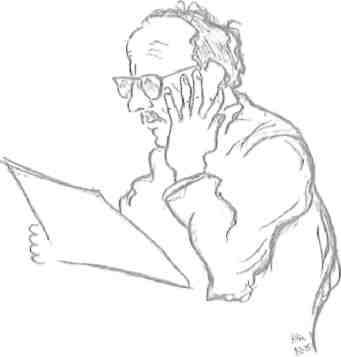
On April 21, 1967, the Junta arrested 700 persons, mostly leftists from the Athens area, and interned them at the racetrack on Syngrou Avenue. Among them was Panayiotis Elis. Four days later, on April 25, a group of prisoners left the building to which they were confined and proceeded toward a nearby fence which served as a latrine. Among the group was Elis. As the group was returning to the building he walked somewhat faster than the others and apparently stepped slightly out of line. According to the testimony of Elis’s fellow prisoners, Captain Kotsaris at this point pulled out his service revolver, fired one bullet at almost point blank range, and killed Elis.
According to Kotsaris’ testimony, the reason for the shooting was that Elis had started to run in an attempt to escape. (The forty-five year old Elis, who is said to have ‘looked’ middle-aged, was wearing bedroom slippers at the time.) The defense devised by Kotsaris’ counsel, Mr. Alfantakis, collapsed as the trial progressed. (Mr. Alfantakis is an extreme right-wing politician who is defense attorney for many of the instigators of the April coup.) The question remained: How could Elis possibly have attempted to escape from the racetrack when it was being guarded by army units supported by three tanks?
The attitude of the young officer, symptomatic as it was of the climate prevailing at the cadet officers’ training school and the ‘education’ to which he had been subjected, has shocked and distressed the nation. ‘Now I can become a general,’ he is quoted as having said to reserve officers in his Haidari unit after the shooting. Tve learned how to shoot live targets, not dummies.’ It is a disquieting thought when one considers that the nation s security was entrusted to individuals of such mentality, a mentality that is not dissimilar to that shown by Lt. William Calley at My Lai. Cavalry Captain Kotsaris was sentenced to only eight years in prison.
THE GREEK Supreme Court has made its decision: high treason is an ‘instantaneous’ crime, not a ‘continuous’ one. As a consequence, the 104 men who collaborated with the Junta and accepted appointments as ministers during the seven-year dictatorship will escape prosecution. Only the actual instigators of the coup will stand trial.
In order to understand the issue, it is necessary to distinguish an ‘instantaneous’ from a ‘continuous’ crime. A single criminal act that is committed once and is not on-going is considered to be an instantaneous criminal offense. Theft and murder, for example, are ‘instantaneous’. A continuous crime, by contrast, is considered to be one which extends as long as the illegal act itself is protracted; kidnapping is an example.
In an earlier decision The Court of the First Instance declared high treason to be a ‘continuous’ crime. This was followed by an appeal by the Public Prosecutor Bletsas to the Supreme Court where the decision was reversed: high treason, it concluded, is an ‘instantaneous’ criminal offense. Ergo, the only crime committed was the initiation of the coup at dawn on April 21, 1967. Governments sworn in during the next seven years of the dictatorship were, therefore, legal!
A storm of protest was raised from the press and the Opposition benches in Parliament where it has been argued that the decision was directly contrary to prevailing public sentiment. Without suggesting that public opinion should dictate court decisions, they have contended that when such decisions appear illogical and prejudiced, the populace, inevitably, loses its confidence in the judicial system.
Although the 104 Junta ministers and deputy ministers have escaped prosecution, the trials do not end here and the instigators of the April coup were brought to trial. The general public, however, considers — rightly or wrongly — that in view of the Supreme Court’s decision as to what constitutes a ‘continuous’ crime, Justice is prejudiced in favour of the Junta members. The people are not as yet in a frame of mind to accept the possibility that those who tyrannized, tortured, imprisoned, exiled and deprived them of their freedom may escape punishment. If they conclude that this may, indeed, happen, it could lead to serious consequences. If so, indignant citizens may pour into the streets of Athens once again as they did in November, 1974.







